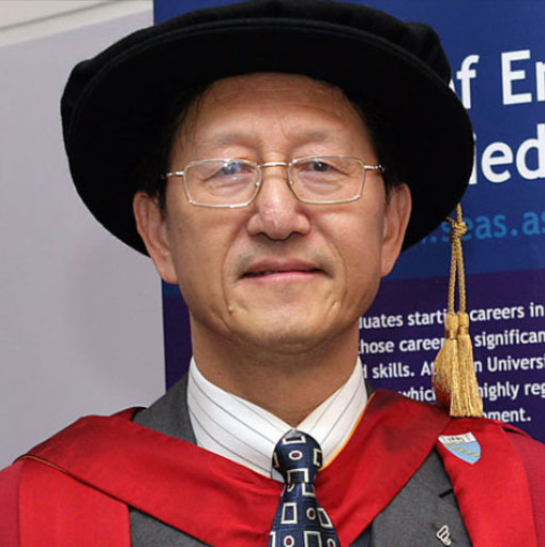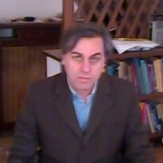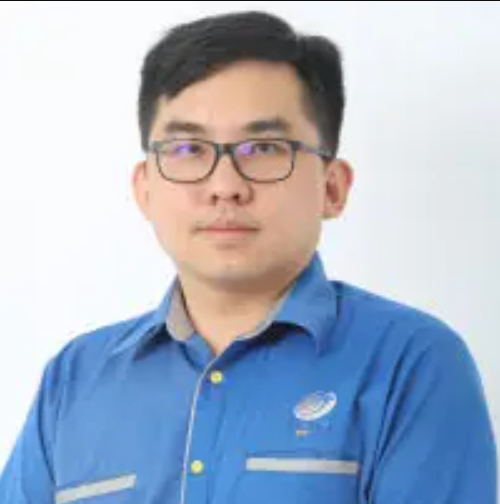Loading...


Dr. Yaohua ZHU graduated from the North-Eastern University of China in 1965. He received a degree of Doctor of Philosophy in metallurgy and materials science in 1983 and was conferred a higher doctor degree of Doctor of Science in applied science and engineering in 2006 at the Aston University UK. Four books and 114 peer reviewed articles were published. His recent researches focus on electropulsing induced phase transformations and their effects on electrical, optical and thermal properties of thin films of functional semiconductors.
Title: Electropulsing induced phase transformations in alloys and thin films of TCO and TE semiconductors
Abstract: Based on systematic studies of equilibrium and non-equilibrium transformations and the stress induced transformations, studies of electropulsing induced phase transformations of alloys and thin films of semiconductors, such as transparent conductive oxides (TCO) and thermoelectric (TE) materials: Bi-Te, AZO have been carried out.
As one of the advanced processes, electropulsing increases plastic elongation of alloys about 437%. Under adequate electropulsing, phase transformations and microstructural changes were tremendously accelerated by factors of at least 6000 times, compared that in conventional aging processes in alloys. The electropulsing induced circular phase transformations ( quenching – up quenching , up quenching – quenching, … quenching – up quenching – quenching – up quenching etc. ) and preferred crystal orientation changes are quantitatively detected to complete within several seconds, in alloys and the thin films. Adequate electropulsing increases electric conductivity of the thin-films for 44.6% and 28.5%, respectively.
The quantitatively detected multi-circulation of both the phase transformations and the preferred crystal orientation changes makes it possible to monitor microstructural changes and to enhance physical and optical properties of the thin films.
The researches road map went through various aspects of the physical metallurgy, included thermal metallurgy, mechanical metallurgy, electro-metallurgy and electro-mechanical metallurgy, and was effective in studying and exploring application of the thin films of semiconductors, as shown in following figure
Dr. Ghenadii Korotcenkov received his Ph.D. in 1976, and his Doctor Habilitate Degree in 1990. Long time he was a leader of scientific Gas Sensor Group in Technical University of Moldova. From 2007 to 2008, he was an invited scientist in Korean Institute of Energy Research, Daejeon, South Korea. Then, until the end of 2017 Dr. G. Korotcenkov was a research professor at Gwangju Institute of Science and Technology, South Korea. Currently Dr. G. Korotcenkov is the research professor at the Moldova State University, Chisinau. His current research interests since 1995 include material sciences, focusing on metal oxide film deposition and characterization, surface science, thermoelectric conversion, and design of physical and chemical sensors, including thin film gas sensors. Dr. G. Korotcenkov is either the author or editor of 48 books, published by Momentum Press, CRC Press, Springer, Elsevier and Harbin Institute of Technology Press (China). In addition, currently he is a series editor of “Metal Oxides” book series published by Elsevier. He is the author and coauthor of more than 675 scientific publications, including 40 review papers, 70 book chapters, and more than 200 articles published in peer-reviewed scientific journals (h-factor = 47 [Scopus] and h-factor = 75 [Google]). Dr. G. Korotchenkov's scientific work has been recognized with numerous national and international awards. G. Korotcenkov have also been listed as one of the "World's Ranking Top 2% Scientists" in Applied Physics/Analytical Chemistry in the Physics and Astronomy Cluster.

Michael Todinov conducts research and teaching in the area of Reliability, Risk , Probabilistic modelling, Applications of algebraic inequalities, Network optimization, Uncertainty quantification, Mechanics of materials and Engineering Mathematics. From the University of Birmingham, Michael Todinov holds a PhD related to mathematical modelling of thermal and residual stresses and a higher doctorate Doctor of Engineering (DEng) which is the engineering equivalent of Doctor of Science (DSc). The higher doctorate was awarded for fundamental contributions in the area of new probabilistic concepts and models in Engineering.
Prof. Todinov has been recognized globally for his exceptional work. He received honors from the Institution of Mechanical Engineers (UK) for his influential contributions to engineering risk reduction. His Doctor of Engineering (DEng) was conferred in acknowledgment of his career-long breakthroughs in mathematical modeling, an award rarely granted and held by only a select few. His books—published by Wiley, Elsevier, and CRC Press—have become foundational references across academic and industrial communities. He’s a frequent keynote speaker, journal editorial board member, and award-winning educator. His blend of academic impact and practical innovation has earned him international respect, with accolades that confirm his status as a pioneer in risk science and reliability engineering. These honors reflect not just achievement, but lasting influence
Title: Designing Out Failure: A Universal Approach to Engineering Reliability

Roberto Zivieri got the Master Degree in Medicine and Surgery and the Master Degree in Physics with honors and the PhD in Physics (grade excellent) from the University of Modena and Reggio Emilia, Italy. He is author of about 200 scientific contributions including about 80 articles in international and reputed journals. His main research interests are on phonon dynamics, dynamical properties of low-dimensional magnetic systems, magnetic and seismic metamaterials, topological defects, phase transitions and critical phenomena, thermodynamics and statistical physics of condensed matter systems including biological systems. He has been serving on an editorial board of repute. He is the Project Manager of scientific international projects. He is a member of the APS, ACS, Italian Society of Mathematical Physics, Italian Society of Physics, and Italian Society of Magnetism. He is the winner of the APS Award “Outstanding Referees 2016,” equivalent to a journal APS Fellowship, of the Albert Nelson Lifetime Achievement Award, and a Fellow of the International Association of Advanced Materials. He is Editor-in-Chief of the book series “Theoretical and Computational Models in Condensed Matter Physics” for Aracne Publishing House in Rome.

Adriano Fagali de Souza obtained his Dr in Mechanical Engineering from the University of São Paulo-USP, Brazil in 2004, manufacturing process. He is an associate professor at the Federal University of Santa Catarina – UFSC, BRAZIL. He acts and coordinates several research projects, in topics related to the manufacture employing the chain CAD / CAM / CNC - CAx - manufacturing of complex shapes. He is the leader of the Computer Aided Manufacturing Research Group - GPCAM. Author of the book 4 books on this field. He is an associate Editor of the Journal of the Brazilian Society of Mechanical Sciences and Engineering - Springer. He has several scientific publications and patents. He is a member of the Advisory Committee of the Technology Areas of the ENADE (National Student Performance Exam). Evaluator of Higher Course of INEP - Engineering Department. Member of the technical committee of Engineering of Manufacturing of the Brazilian Association of Mechanical Sciences - ABCM.

Prof. Dr. Tushar Sonar is a renowned researcher in welding and joining, recognized among the top 2% of scientists globally by Elsevier and Stanford University for 2025. He currently serves as a Senior Researcher at the Department of Welding Equipment and Technology, South Ural State University, Russia, and as an Adjunct Research Professor at Chennai Institute of Technology, India. His scientific achievements are marked by significant contributions to advanced welding techniques, high-entropy alloys, and additive manufacturing. With 11 years of experience, he has held significant positions across esteemed institutions, demonstrating versatility and adaptability in research, academia, and industry. He serves as an Associate Editor for reputable journals, including the International Journal on Interactive Design and Manufacturing (Springer) and Welding International (Taylor & Francis). He is also an Editorial Board Member of several journals, including Heat Treatment and Surface Engineering (Taylor and Francis) and Advances in Materials Science and Engineering (Wiley).He has published over 110 research papers in Scopus and Web of Science indexed journals and presented works at 20 international conferences across India, China, Russia, Spain, and Greece. His research has garnered substantial citations, with an h-index of 21 (Scopus) and an i10-index of 53 (Google Scholar). His focus areas include welding and joining, additive manufacturing, coatings, high-entropy alloys, and superalloys, with applications in aerospace, automotive, and power generation. He has received prestigious recognition, including being ranked among the top 2% of scientists globally, and has secured fellowships, including the ISRO RESPOND research fellowship (2017-2021). He has secured a substantial project grant of 3 million Rubles from the Russian Science Foundation and Chelyabinsk regions for 2024-2025. He has established strong collaborations with esteemed organizations in India, Russia, China, South Korea, and Poland, advancing research and innovation in welding and additive manufacturing.
Title: Dissimilar welding of martensitic steel and austenitic stainless steel for power generation applications

Dr. Heah Cheng-Yong currently serves as an associate professor at Universiti Malaysia Perlis (UniMAP) in Faculty of Mechanical Engineering and Technology, Malaysia. He is the fellow researcher at Center of Excellence Geopolymer and Green Technology (CEGeoGTech) in the same institution. His research interests focuses on materials engineering, geopolymers, construction materials, materials characterization, materials processing, and materials characteristic. He is appointed more than 10 international editorial board members by multidiscipline journals.
Title: Geopolymer Development in the Malaysian Context